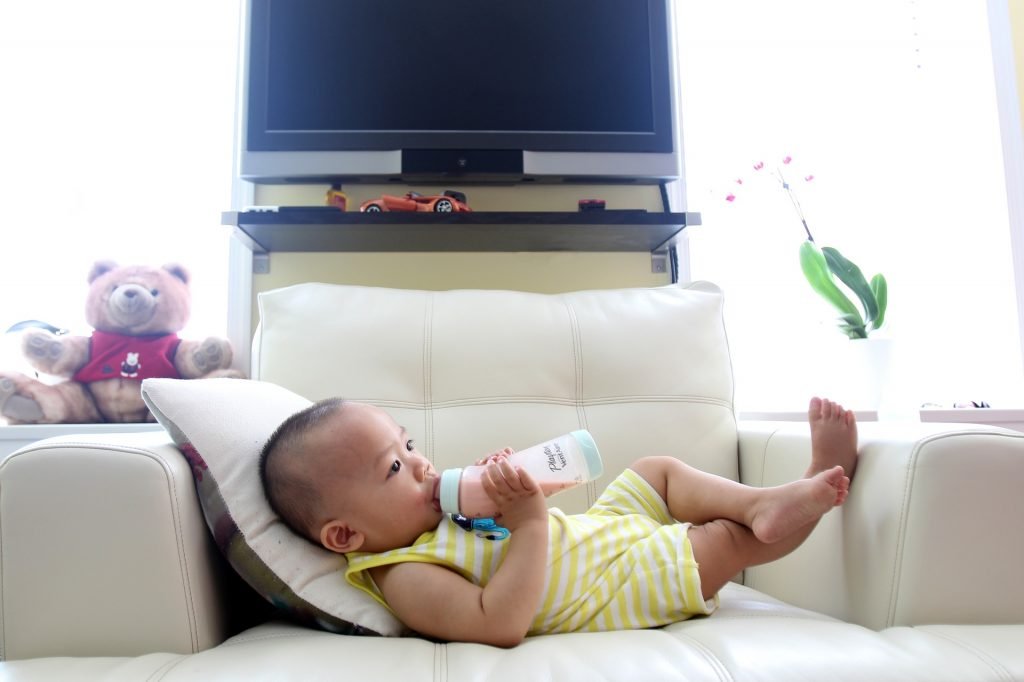When Will Your Newborn Hold Their Own Bottle?
When we consider the most important baby milestones, we typically think of the most important ones that are frequently asked about by parents crawling and sleeping through the night (hallelujah) walking, clapping, or saying the first word.
Sometimes, it’s the small things.
For instance: the first time your baby is holding a bottle of their own (or any other object such as a baby teether one you have to carry for them) and you discover how much you’ve been missing having an additional hand to get the job accomplished.
Baby is at the ready for their first bottle
If your baby isn’t there yet, don’t be concerned it’s not likely to be anything wrong with their coordination. Each baby is unique. However, if you spot these signs, prepare to cheer your hands with joy, because the independent bottle-holding (or drinking from cups that you may be inclined to encourage instead) is coming soon.
- your child can sit on their own
- While sitting, your little child can remain balanced when playing with their toy on their hand
- Your child reaches out for items and grabs them while still
- your child reaches out to (age-appropriate) food items you offer them food and puts it in their mouths
your child places one either on a cup or bottle as they eat
However, if you’re trying for ways to encourage your baby to offer a helping hand (literally) You can consider:
- buying best slow flow sippy cups that are easy to grip with handles (baby will require at least two hands for holding the sippy cup at the very least for the first time)
- placing your hands over the bottles before placing theirs on top and then moving the bottle towards their mouths
- Spending a lot of time building baby’s muscle strength, like through the tummy time
Your child is required to be sitting up on their own before they feed themselves since it’s a task that should be done in an upright posture.
A few precautions to be aware of as you give up control over the bottle
It’s a wonderful moment for your child to feed themselves. But they’re not yet mature enough or smart enough to make the most informed choices, and it’s best not to leave them on their own devices.
Age of average for reaching this landmark
A few babies are able to drink from their own bottles as young as 6 months old. This doesn’t mean it’s not going to be the case sooner or later there’s a broad variety of normal.
The typical age could be close to 8 or 9 months old, at which point babies are strong enough and have fine motor abilities in order to grasp things (even two in one hand!) and guide them to where they’d like to take them (like into the mouths of their babies).
Things to be aware of:
Make sure this: the milk bottle was designed meant for feeding and not for sleeping or comfort. Giving your baby the bottle (or even sippy cups) to hold before doing other things is not an ideal choice.
Beware of leaving your baby in the crib with the bottle. While they may be more than content to sip their way before bed, a trip to sleep with a bottle in their mouth isn’t the best idea. Milk may collect the area around their teeth, causing tooth decay over the long run and can cause choking in a short time.
The main takeaway
Hands up to the sky like you’re not concerned -Your baby is becoming a self-sufficient eater! Of course, you will still need to feed your child for the majority of the time, to bond, for cuddles, and for security.
In addition, independent eating is an art by itself, which is far more important than having a bottle to hold and especially because the days of the bottle are over as your child approaches the age of.
If your child demonstrates this ability — usually between 6 to 10 months You are welcome to give them their bottle often.
